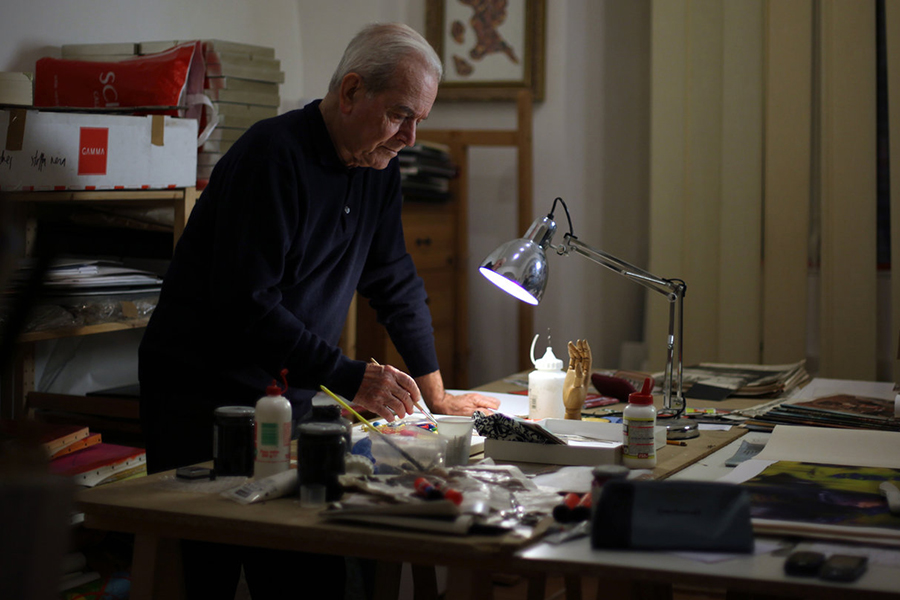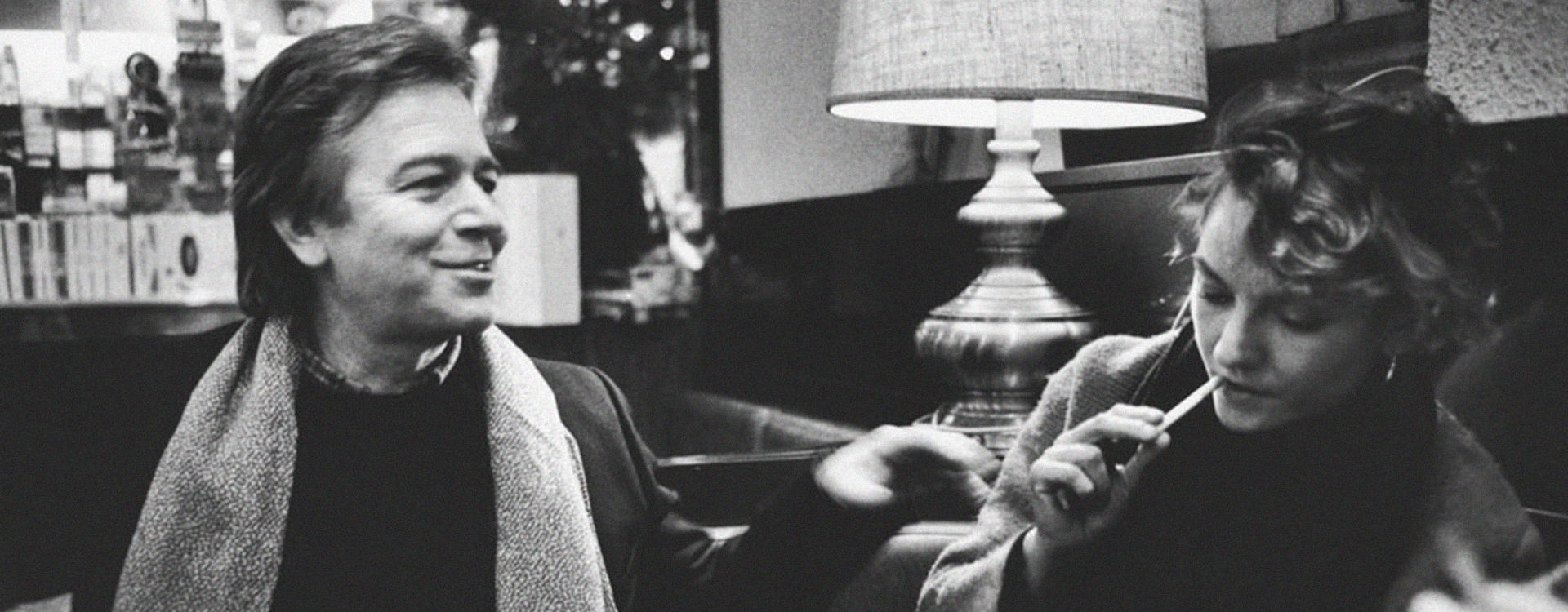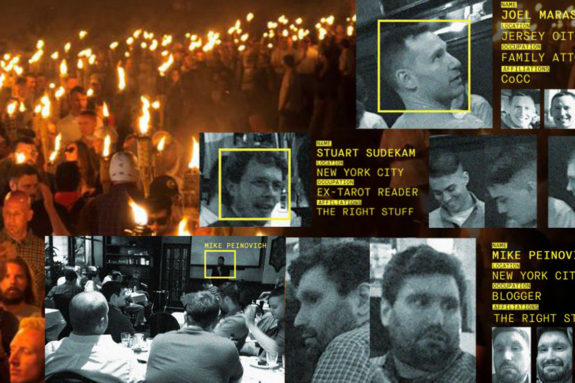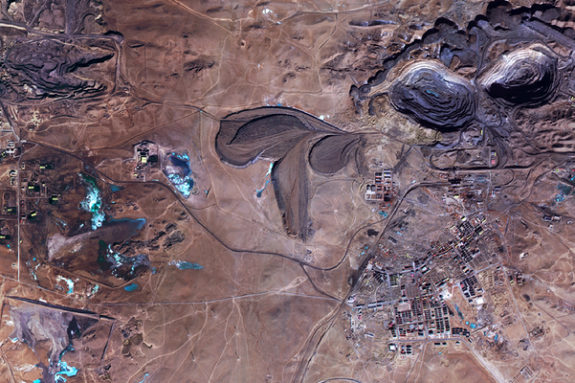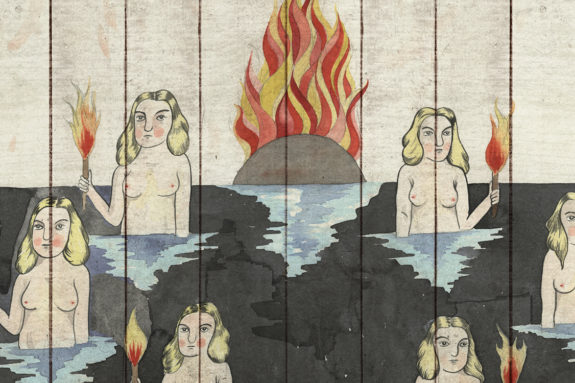In the great writer’s novels, style is the consciousness of a revolutionary class in formation.
Nanni Balestrini, novelist, poet, visual artist, and revolutionary, died this past May at age 83. An hours-long celebration was held at Rome’s Teatro Argentina to honor Nanni, who hated funerals. The event was called “The greatest Nannis of our lives.” I could not attend and instead wrote a short text that was translated by Maria Teresa Carbone, Nanni’s collaborator and friend of many years, with whom he published the journal Alfabeta 2. Maria Teresa read my text seated on the stage with Paolo Virno to her left and Alfonso Natella to her right. Someone sent me a photo taken as she read, with a caption: “MT, Paolo, and Alfonso.” I was in disbelief.
Alfonso Natella was the individual whose voice had lent Nanni’s novel We Want Everything its tumult and urgency. The unnamed first-person narrator, like so many others in the 1950s and 1960s, has migrated from the south to the north and gone to work for Fiat. Perhaps like those who came before him, he detests factory work. Unlike them, but alongside others on the assembly line who arrive when he does, he decides to demonstrate his hatred for work, show the bosses how little he cares for their meager and miserable rewards. This fictional narrator, who came to represent the voice incarnate of strike and riot — of sheer refusal as something like a spontaneous “strategy” — was based, Nanni had admitted, on a real person. But none of Nanni’s very broad circle of friends and collaborators, the whole layer of Italy involved in far-left politics of the 1970s, had ever met Alfonso. Some people even suspected there was no Alfonso — that he was an amalgamation of the many people Nanni would have met and organized alongside during the Hot Autumn of factory strikes in Milan and Turin, in 1969 and 1970. The character Nanni created in his novel was singular, marked, and yet an any-person: not belonging to one identifiable man among the millions who sought factory work in the north in the postwar boom. And yet the mysterious Alfonso turned out to be real. Almost fifty years after his appearance in We Want Everything, he walked into the Teatro Argentina and announced himself, finally showing his face in order to celebrate his departed friend.
Nanni’s novels have meant a great deal to me over the years. Formally, stylistically, they are in a category alone. Until I discovered them, I had often wondered if a novelist needed to have contempt for humanity, à la Céline, to have a great style. Style and cynicism — the ability to satirize, and to leave nothing sacred — had always seemed linked. In youth, I’d even regarded a lack of nihilism as an artistic weakness. Nanni gives the lie to this idea. His novels, which are as funny and bleak as Journey to the End of the Night, or almost, are not fueled by contempt, but instead a kind of indestructible belief in revolutionary possibility. This may have something to do with the way the books were made. Nanni was a subversive, an activist, and an organizer lifelong, in meetings, on barricades, outside factory gates, in the streets, in clandestine spaces. Never a voyeur, and always a participant, which must have been why people trusted him when he turned on his tape recorder. He was introducing art — the novel — to the work of rejecting, possibly overthrowing, bourgeois structures of power. For We Want Everything, his novel about the 1969 factory revolts in northern Italy, and The Unseen, about militants forced underground in the wake of the Autonomist actions of the 1970s, he recorded the voices of real people and then ventriloquized their stories in delirious and addictive run-on streams of “I,” each voice a speck in the multitude, a witness. Not a person receding from the crowd, but the anonymous political subject, scored with the knife of history.
What’s particular about Nanni’s contribution to the form of the novel is not just his style, but the way he upends the phantom qualifier “bourgeois” to a literary form traditionally predicated on consciousness as distance, distinction, observation, or inner experience. What Nanni does, in producing literature of the voices of people like Alfonso Natella — and also Sergio Bianchi, whose life story appears in The Unseen, and the narrator of Sandokan, who speaks of the impact of the Camorra on a small community in southern Italy — is to take an outlook, the much-touted individual consciousness, and merge that consciousness with class, a grouping indivisible into lone lives.
Before I’d learned much about the history of revolutionary struggle in Italy, I knew about Balestrini — which tells you that I didn’t know very much about Balestrini. On a trip to Italy fifteen years ago, I decided to really take on learning about his work. I went to Feltrinelli and bought a bunch of books. I brought them back to where I was staying, in Milan, at the home of an old friend of mine, who is of the same generation as Nanni. “What do you think of this writer?” I asked. My friend said, “What do I think of Nanni? When he was going to be arrested, I drove him to the Alps so he could escape Italy. He skied over to France, and I picked him up in Chamonix.”
“Not a person receding from the crowd, but the anonymous political subject, scored with the knife of history.”
I had thought my friend and I were going to discuss Nanni’s poems, his art, his novels, possibly his politics — not a fugitive life. But life, and politics, and art, are fused in the spirit of Nanni, and thus, in retrospect, hearing that my friend helped him get to safety in France in the crackdowns of the late 1970s should have come as no surprise. Later on, when I knew more, what really shocked me was the idea that Nanni was a good enough skier to make it down Mont Blanc (I later learned that a ski instructor — his brother-in-law — had skied with him).
I tried asking Nanni about this flight over the Alps on a few occasions, but Nanni didn’t really like questions. A question for him was often the path to banality. Upon meeting him for the first time, I eagerly peppered him with questions about various people he’d known, about how he made his art, about the politics of Autonomia. He put his hand on my arm and said, “Look, let’s talk about what wine to order. This is lunch. We are in a restaurant. Let’s behave like normal people. We will decide what to eat, what to drink, even talk about the weather. The other stuff can wait.”
At that lunch, in 2016, when we did eventually get to politics, he was serious and astute, focused on life now and life in the future: not nostalgic, even as he wasn’t hesitant to discuss the past. As he later told me, when I interviewed him more formally, “More than being nostalgic, I consider myself lucky to have been through an extraordinary and happy period. But it would be senseless to search in that period for something anticipatory or something that could be applied politically in a radically different situation like the one we’re living in forty years later. Everything is different, everything has changed. We need new ideas — and those are always more difficult to come up with. That period bequeaths us only a stimulus, or better, an imperative: that we need to change the world, and that this is possible, necessary and urgent.”
Nanni was a dandy and a gentleman; he’d greeted me at the airport the morning of our lunch in a pristine blazer and driving moccasins and escorted me by taxi into Rome. At the end of our day together, he walked me to Termini train station. We said goodbye at the point where only ticketed passengers are allowed through. I kept turning back, and Nanni remained standing where we had parted. He watched until my train arrived and I’d boarded. In that long, stretched interval, of watching him stand there waiting to see me depart, I knew I would never see him again, and I didn’t, though we corresponded somewhat regularly.
Nanni never answered my central question about We Want Everything, regarding the life of Alfonso. Now, looking back, I’m not sure why this was so important to me. I think I could not fathom how it was that Nanni constructed a voice that sings with such particularity, comedy, force, and rage, and yet gives us a sense of thousands. Nanni was quite stubborn in his refusal to tell me anything about Alfonso. He said, “You’re trying to force me to give Alfonso back his individuality. This is the opposite of what I wanted to do in the book, where he has no name. I can’t do that.” For Nanni, an artistic imperative was an absolute imperative, and one that had consequences: to give Alfonso back his individuality would be to take away that very same individuality from all the nameless people to whom it came to belong — people who constituted a genuine social and political power, who lived both in the world and in the pages of Nanni’s books.
